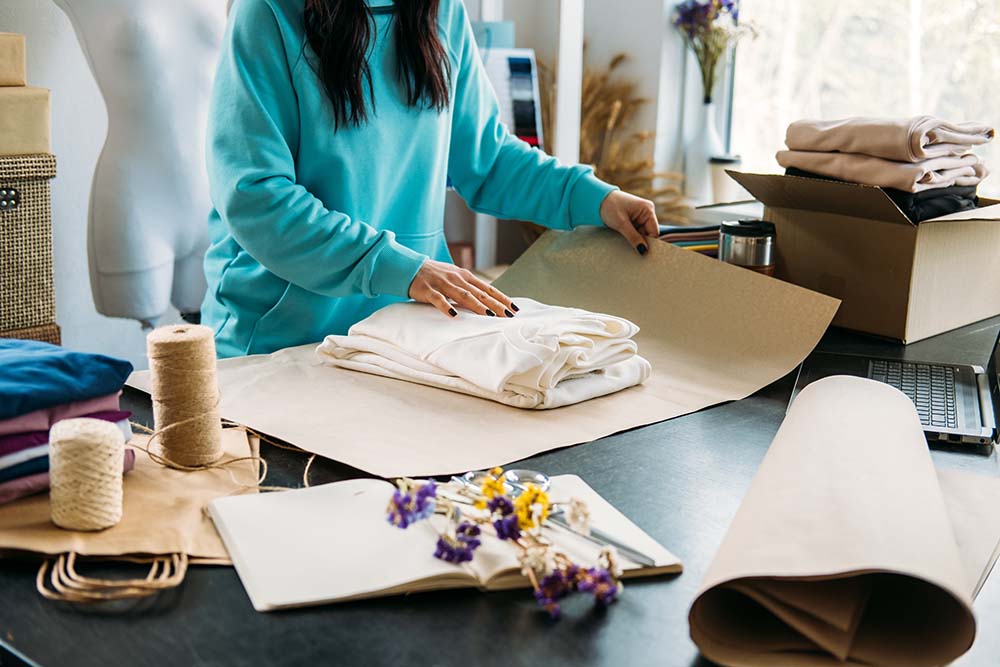Nearly three years ago, Alia Bhatt launched Ed-A-Mamma, a clothing brand for kids that puts the environment first. According to their website, the fabrics are natural fibre-based and biodegradable; the clothes can be put into a compost pile after their lifecycle. In fact, their range of organic tees is made from Global Organic Textile Standard (GOTS)-certified yarn. The metal trims are nickel-free and no plastic buttons are used. They also use safe dyes that are AZO-free and fabric scraps are not discarded – instead, they are used to make hairbands and potli bags. The tags are made from FSC-certified paper and each garment comes with a seed ball that you can nurture into a plant.
Essentially, what Alia is doing is eco-entrepreneurship – turning into an entrepreneur but with a focus on the planet. In addition to this venture, she is also an investor in Phool.co, a startup that uses flower cycling technology to convert floral waste into natural incense and other products.
Eco-entrepreneurs – or ecopreneurs – refer to those who seek business opportunities not just for profit, but do so while also keeping the well-being of the environment in mind. Eco-entrepreneurs are concerned with growing their business and gaining competitive advantage, but also seek to find solutions to sustainability challenges around us. These could include products that are organic and chemical-free, those that are Fairtrade, local (to reduce carbon footprint) and low on waste generation.
Why Are Women Better Ecopreneurs?
Sruti Harihara Subramanian, Founder of Goli Soda Sustainable Solutions, an online portal for sustainable brands says, “If you look at most sustainable or eco-businesses that are coming up right now, invariably, most of them are spearheaded by women. This is a great time to be associated with a sustainable brand because more people are becoming conscious of the harm that’s being done to the planet. We started Goli Soda Sustainable Solutions way back in 2013, when these conversations were not as common. Nowadays, it is heartening to note that the awareness is much higher, people also have workshops, and there is already a customer base that is building for things like this.
“I also feel that women are better suited for these startups. For one, women are naturally more empathetic beings. Being a woman leader in an organisation makes the workplace culture that much more positive. Also, when you are empathetic, it isn’t just towards other humans; you also have a tendency to be more conscious about the planet. I’ve also noticed that most women founders end up switching careers or starting businesses once they become mothers. Of course, they enjoy the flexibility, but they’re far kinder and more empathetic as well. They’re conscious about what is happening to the planet and want to leave the best they can for the future generation. Yes, it’s not easy, because startups – especially those in the sustainable space - have their own pressures. But I think women make the best leaders for all businesses, especially sustainable ones.”

Nitin Gadkari, Union Minister in India’s Government, urged NITI Aayog, the country’s public policy think tank, in 2018 to formulate a policy to promote the waste recycle-based business. As per the report, there are untapped opportunities worth ₹10 lakh crores available for ecopreneurs.
But profits aside, what are the other factors that motivate ecopreneurs to ensure their business models focus on sustainability? Social and environmental responsibility for starters, followed by passion, the urge to innovate and create something new, and the satisfaction of meeting challenges. Also, there is an existing gap in the market, which most ecopreneurs see the opportunity to fill right now. Ecopreneurship also builds reputation and goodwill in the long-run.
The Customer Connect
Neharika Reddy, a consumer of sustainable products, says, “We all agree that climate action is necessary and can’t be ignored. Unless we start patronising brands and products that take their offerings seriously, and put sustainable solutions on the table, companies and entrepreneurs are going to be slower in closing the gap. I feel that brands run by women, such as Bare Necessities, Allter and Soapworks, are great alternatives to those that don’t focus on sustainable practices.
“This doesn’t mean that we are willing to discount factors like affordability and quality. Paying a small premium for an environmentally-friendly product is a minor price to pay, though. Some of the key areas we need to look at are plastic-free wrapping, no chemicals, use of upcycled materials and life of a product. Other than the product, I would also love to support brands that treat their employees and labourers fairly, and use clean energy and minimum waste in the production of their goods or service offerings.”
Statistics revealed by INC suggest that 66 per cent of global consumers will be more loyal and willing to pay more for sustainable goods. WeWork says that according to a 2022 study of 850 companies globally, 80 per cent planned to increase their investments in sustainability. The Economist reports that there has been a 71 per cent rise globally for online searches for sustainable goods. It’s never been a better time than now to become an eco-entrepreneur!
Summer Rayne Oakes, who calls herself the world’s first ‘eco’ model and serial ecopreneur, said in her book ‘Style, Naturally’, “One day we’ll wake up and green will not be the new black, it will be the new invisible. Meaning, no longer will sustainable be the exception or something that’s considered au courant; instead, it will be a matter of course.”